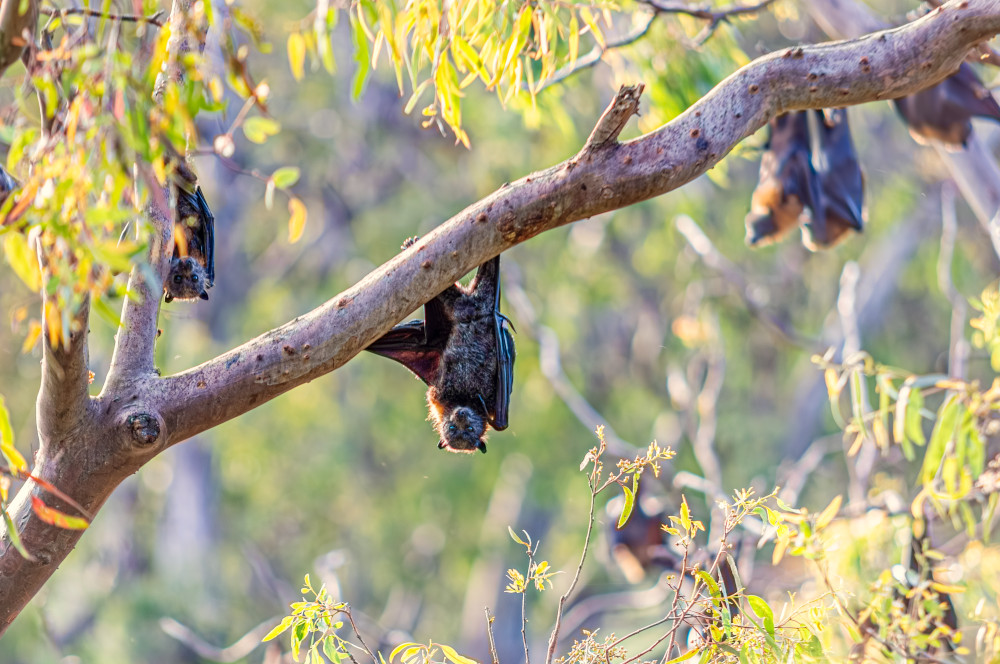Do flying foxes pose a disease risk to my dog?

There are two viral diseases affecting bats that can also infect dogs. These are Hendra virus and Lyssavirus. There have been no cases in Australia, where dogs have been clinically ill from either of these viruses. People are reminded not to handle bats and flying foxes in Australia due to the risk of these potentially fatal diseases.
Hendra virus
To date, there have only been two reported cases in which dogs tested positive for Hendra Virus (HeV).
It is suspected that the dogs became infected following close contact with infected horses, and not directly from flying foxes. There is no evidence that dogs can be infected directly from flying foxes.
The best protection for your dog is to keep them away from infected horses and possible contaminated areas. and as a general biosecurity precaution keep them away from flying foxes. Hendra virus is a very serious and fatal disease to humans and any suspect cases in horses must be reported immediately to your State Department of Agriculture or Primary Industry.
Unless advised by Government officials there is no need to get your dog tested for HeV.
Australian Bat Lyssavirus
Australian Bat Lyssavirus is closely related but not identical to the rabies virus, and causes severe nervous system signs. It has been found in bats in Australia. No dogs in Australia have become ill with lyssavirus disease, but dogs that come into contact with bats may still be at risk. Transmission is directly through a bite from an infected bat, so precautions should be taken to prevent contact between your dog and bats. This may include keeping dogs (and cats) inside at night, particularly when bats are feeding on fruiting or flowering trees on or near your property, and keeping pets on a leash when walking near bat colonies.
If you are concerned about your dog, especially if you suspect that they have been bitten or scratched by a bat, please seek advice from your local veterinarian.
If you see a sick, injured or dead bat, contact the RSPCA for advice. Do not touch any bat. Only appropriately trained and vaccinated people should handle bats.
Was this article helpful?
This work is licensed under a Creative Commons Attribution-NonCommercial-NoDerivatives 4.0 International License.


